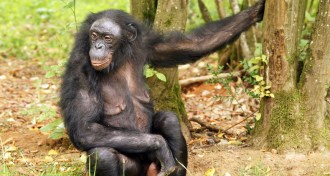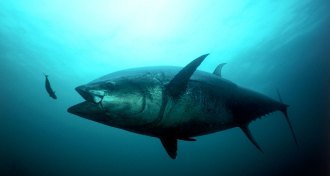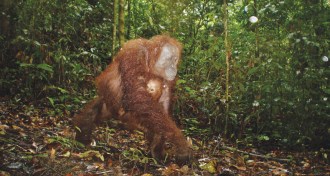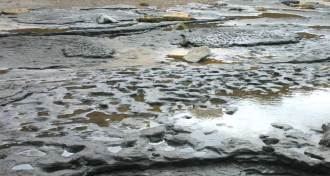News in Brief
-
 Health & Medicine
Health & MedicineHighlights from the International Stroke Conference
Clotting risk after pregnancy, driving after a stroke and more presented February 12-14 in San Diego.
By Nathan Seppa -
 Oceans
OceansUnknowns linger for sea mining
Scientists struggle to predict underwater digs’ effects on sea life.
By Beth Mole -
 Psychology
PsychologyStress hormone rise linked to less risky financial decisions
People given cortisol chose safer options, suggesting inherent risk aversion as an overlooked variable in financial crises.
-
 Animals
AnimalsBonobos feel the beat
Some animals, like cockatoos and bonobos, are able to move to the groove. Studying animals that keep the beat might tell us whether musical rhythm is really widespread.
-
 Chemistry
ChemistryX-rays uncover hidden faces in Rembrandt painting
Lead paint under the surface of the work gives away the artist’s indecisiveness.
By Beth Mole -
 Health & Medicine
Health & MedicineProject to collect 100,000 people’s medical data
Tracking microbiomes, blood tests and more over decades could provide individual health recommendations.
-
 Environment
EnvironmentHow oil breaks fish hearts
Hydrocarbons that spill into oceans stifle the beat of tuna cardiac cells.
By Beth Mole -
 Neuroscience
NeuroscienceGene adds wrinkle to brain development
Mutations in the gene GPR56 results in misshapen folds in the brain tied to intellectual and language disabilities.
-
 Animals
AnimalsOrangutans hit the ground walking
A surprising affinity for moving across the forest floor may aid threatened apes.
By Bruce Bower -
 Health & Medicine
Health & MedicineDrug injection could limit heart attack damage
Study in pigs suggests hydrogel treatment might minimize the risk of heart failure in survivors.
By Nathan Seppa -
 Chemistry
ChemistryCarbon monoxide junked for making plastic
Using a catalyst, chemists can swap in the less dangerous carbon dioxide.
By Beth Mole -
 Archaeology
ArchaeologyNearly 1-million-year-old European footprints found
Erosion temporarily unveils remnants of a Stone Age stroll along England’s coast.
By Bruce Bower